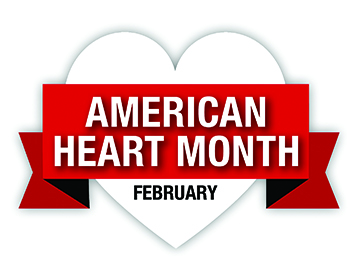by Caitlin Stackpool
February is American Heart Month and, no matter what your age, it’s important to consider some heart-healthy habits. Caitlin Stackpool, Director of Community Integrated Health at the YMCA of Metro Denver, answers some important questions about heart health and ways to look out for your “ticker.”
Q: Why is it important to talk about heart health?
A: According to the American Heart Association, high blood pressure, also called hypertension, affects nearly half (46%) of adults and only 1 in 4 of those individuals have it under control. It is one of the leading causes of death in our country. Over time, unchecked high blood pressure can lead to heart disease, heart failure, stroke, kidney failure and other health problems.
Q: How would someone know they have high blood pressure? Are there signs?
A: Unfortunately, high blood pressure is often called the “Silent Killer” because there are typically no warning signs or symptoms. One critical thing you can do is regularly monitor your own blood pressure.
Q: What should people know about self-monitoring their blood pressure?
Studies have shown that routine self-monitoring of blood pressure can actually lead to a decrease in pressure and overall better blood pressure management. When people can physically see those numbers fluctuating, they can better adjust their behaviors — eating habits, exercise and other lifestyle changes.
A program like the YMCA’s Blood Pressure Self-Monitoring Program can help those struggling with high blood pressure. It is a program open to anyone — you don’t have to be Y member.
Q: What do you cover in the YMCA’s Blood Pressure Self-Monitoring Program and what does it cost?
It’s a four-month program working with a trained Healthy Heart Ambassador. Participants: 1. measure and record their blood pressure at least twice a month; 2. identify and control triggers that raise blood pressure; and 3. adopt healthier eating habits.
Something as simple as reducing the amount of salt you eat can help lower blood pressure significantly!
The program is offered virtually at this time and at no cost, although there is a fee for the blood pressure cuff.
Take control of your heart health and learn more about the program at denver ymca.org/blood-pressure.
Caitlin Stackpool is the Director of Community Integrated Health for the YMCA of Metropolitan Denver. With a background in clinical exercise physiology and health education, she has a passion for disease prevention through making small lifestyle changes.

